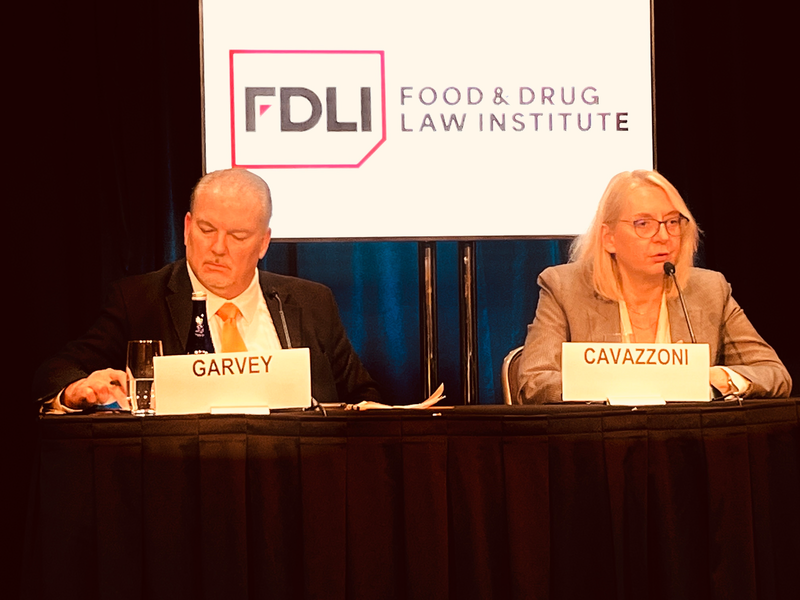WASHINGTON – The US Food and Drug Administration (FDA) does not intend to further delay enforcement of requirements for manufacturers’ track and trace verification systems under the Drug Supply Chain Security Act (DSCSA) and expects those systems to be up and running this November, asserted Patrizia Cavazzoni, director of the agency’s Center for Drug Evaluation and Research (CDER).
Cavazzoni made these remarks at the 2024 FDLI Annual Conference on Wednesday. She added that the agency’s NextGen portal is up and running and will be able to accept DSCSA-related documents by November.
In other areas, Cavazzoni announced that FDA advisory committee meetings will be transitioning back to in-person meetings in June while such meetings will be fully in person by September. She also noted a “significant uptick” in the number of new drug applications (NDAs) containing artificial intelligence/machine learning (AI/ML) elements.
Cavazzoni told the gathering that “we have seen a lot of progress” with respect to industry’s uptake of lot level tracing since DSCSA was implemented in 2013.
In August 2023, FDA announced it would be giving firms a one-year reprieve or “stabilization period” from DSCSA track and trace requirements to give companies more time to prepare their systems. (RELATED: FDA gives firms one-year reprieve from DSCSA track and trace requirements, Regulatory Focus 25 August 2023)
The reprieve was issued in response to industry’s complaints that they did not have the necessary systems in place to be compliant with the law last November.
Yet Cavazzoni told the crowd that come this November, there will be no more reprieves. “I really want to emphasize that this is not really a matter of kicking the can down the road.” Industry should use the one-year stabilization period to “troubleshoot and get assistance and secure their processes” so that all systems are ready by November 2024.
For its part, she said that CDER’s NextGen portal will be ready to accept documents related to DSCSA documents such as requests for exceptions and waivers.
Cavazzoni also urged industry to register for an 18 June meeting sponsored by FDA and the Partnership for DSCSA Governance (PDG) on DSCSA readiness. The meeting is meant to serve as a “midway check” for industry to exchange lessons learned and communicate problems with vendors and to institute process checks. She reiterated that “we really intend to go live with this” in November 2024.
In-person adcomm meetings
According to Cavazzoni, FDA has “done a lot of work” in the area of advisory committee reform since last year.
Cavazzoni said that the CDER’s advisory committee modernization workstream has been active in these areas: meeting planning, clarifying when a meeting is appropriate, streamlining and refining processes for recruiting and retaining experts, and creating resources for CDER review teams to improve the development of briefing material.
“We really want to get to a point where we are more consistent in how we decide to bring something to an advisory committee. We also want to be more consistent when it comes to our briefing documents and the questions that we ask,” she said.
FDA will hold a public meeting on 13 June to solicit feedback on proposed reforms such as the composition of committees, serving on an advisory committee as a government employee, and increasing the public perception and understanding of these committees.
In addition, FDA will be returning to in-person advisory committee meetings in June with a full transition to in-person meetings in September, said Cavazzoni, following a transition to virtual meetings prompted by the COVID-19 pandemic.
‘Significant uptick’ in applications with AI/ML elements
Cavazzoni noted a “significant uptick” in the NDAs containing AI/ML elements. In 2015, she said the agency received a single submission that included an AL/ML component, and in 2022, CDER had 175 submissions containing AI/ML elements.
These elements are being leveraged to predict drug outcomes and to select covariates, pharmacometrics modeling, and for detecting anomalies.
She noted that AI has the potential to revolutionize health care in advancing medical product development, improving patient care, and augmenting the capabilities of health care practitioners.

